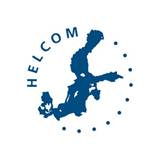
Regular aerial surveillance reduces illegal discharges in the Baltic Sea
10 September 2014
HELCOM’s international aerial surveillance operation over the Northern Baltic Sea ended today at 17:00 (CET +2hrs), completed despite thick fog at night time, 27 hours after the start. This year’s Coordinated Extended Pollution Control Operation (CEPCO North) was organized by the Estonian Police and Border Guard and no oil spills or other discharges from ships were detected.
“The operation involved four specially equipped aircraft from four countries - Estonia, Finland, Latvia and Sweden. More support was provided by three participating vessels as well as through satellite surveillance from the European Maritime Safety Agency (EMSA). The weather conditions had a major effect to the operation due to unpredictable fog, but nevertheless the overall cooperation went smoothly”, says Priit Pajusaar, CEPCO North 2014 coordinator and Police Captain from Estonian Police and Border Guard Board.
Such high-intensity operations supplement the regular aerial control operations in the region which aim at creating a realistic picture of the level of compliance to the anti-pollution regulations in the Baltic area. The purpose is also to gather evidence of infringements and, if possible, to catch polluters red handed.
“Pollution surveillance has a substantial preventive effect on the illegal oil discharges. All HELCOM states should ensure sufficient support and funds for surveillance, in order to respect the HELCOM precautionary principle as well as the commitments of the Helsinki Convention through regular pollution control. Moreover, the persistent efforts of the HELCOM Response Group deserve credit for the decreasing trend not only in the number of oil discharges in the Baltic, but also in their volume,” says Harry Liiv, Chair of HELCOM.
Since the timing of the HELCOM CEPCOs is randomly selected, the operation is intense and strictly confidential until the entire operation is over, it reflects the realistic situation of discharges in the Baltic Sea.
CEPCO operations have several objectives, such as to survey continuously high density traffic areas with a high risk of illegal discharges; identify and catch the polluters; practise communication between aircraft, patrol vessels and the Command Centres involved; improve cooperation between countries; and exchange experiences between crews.


